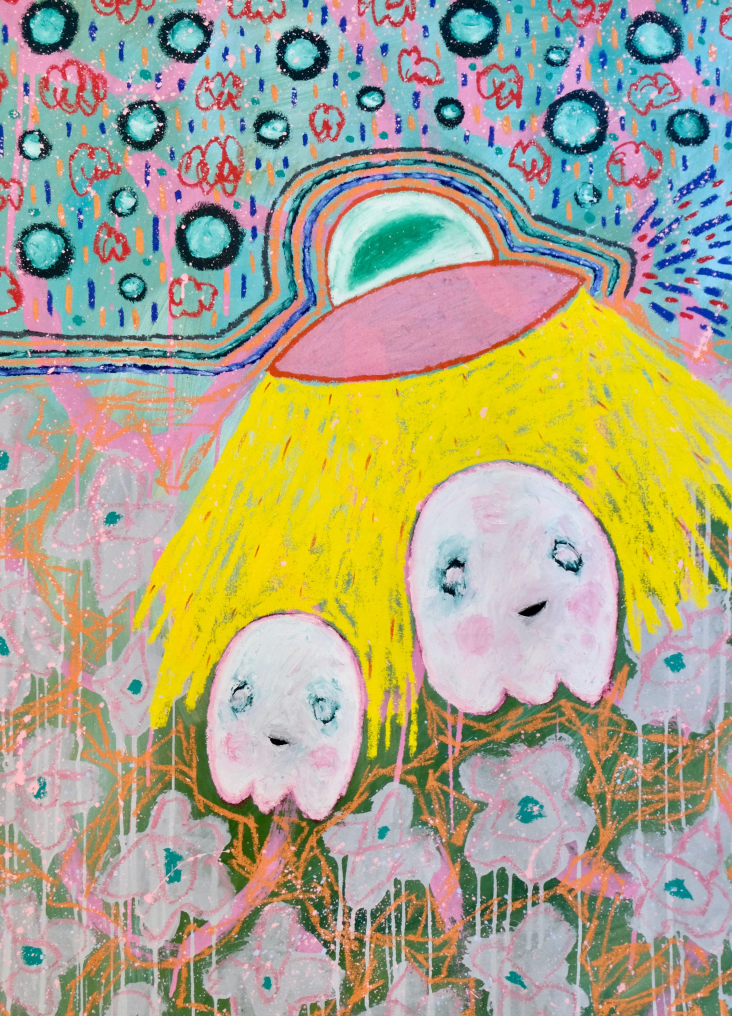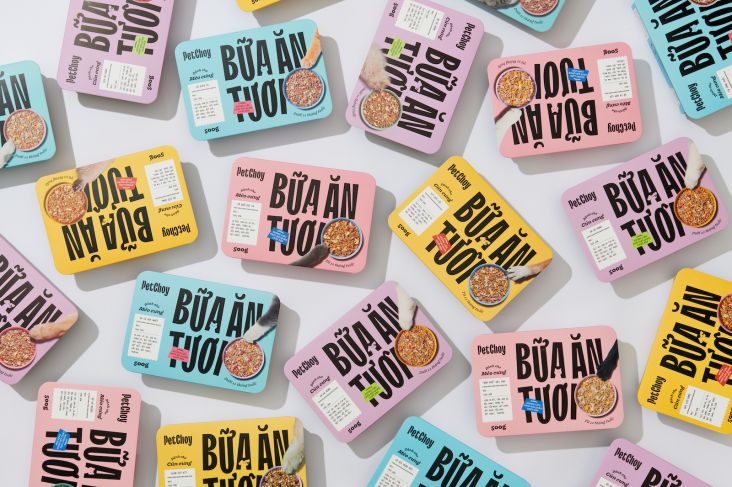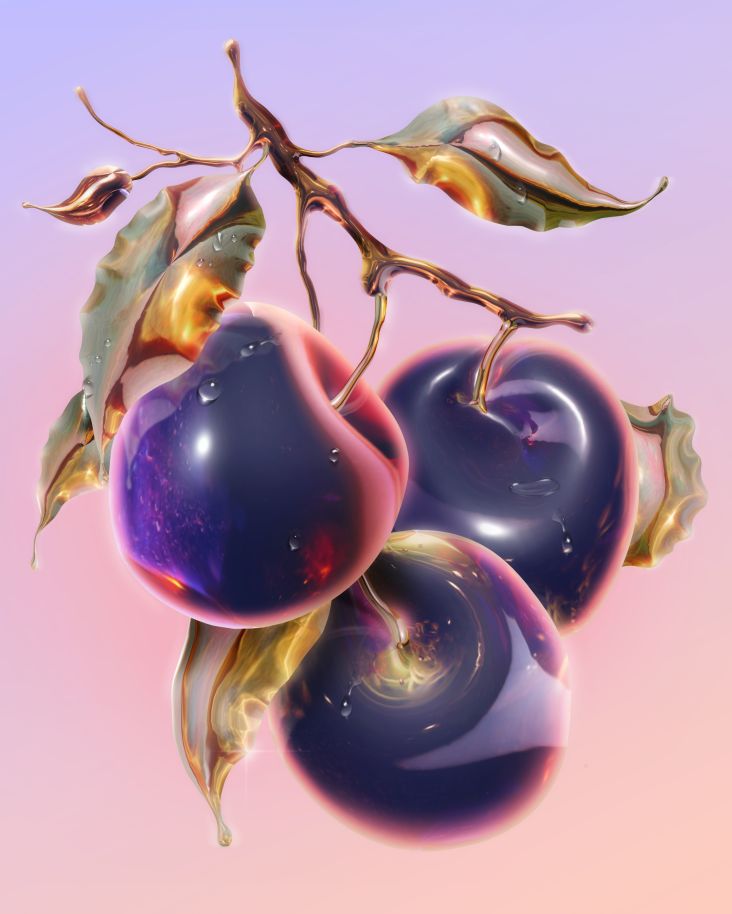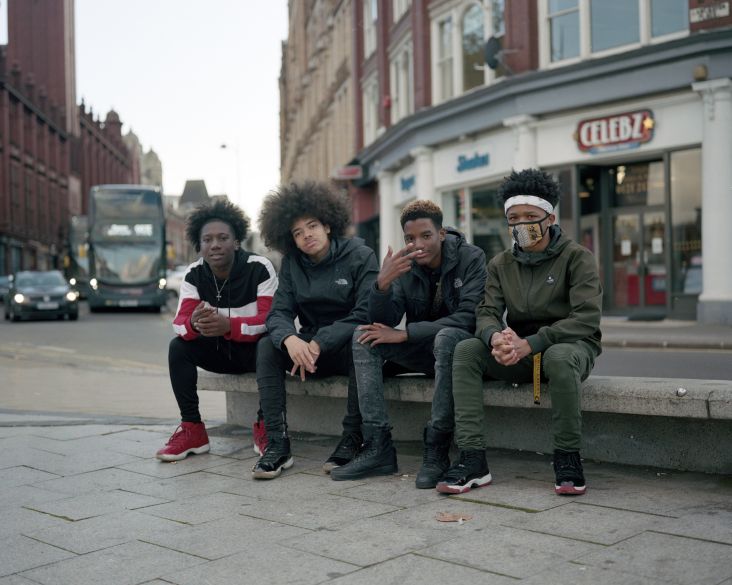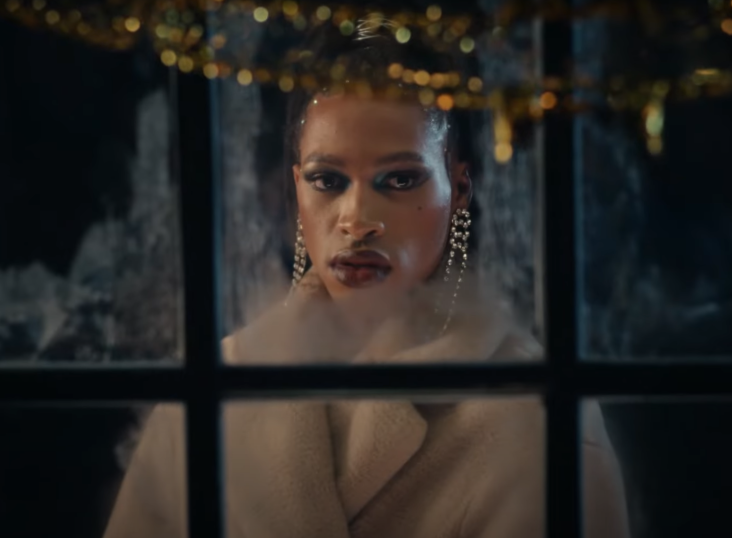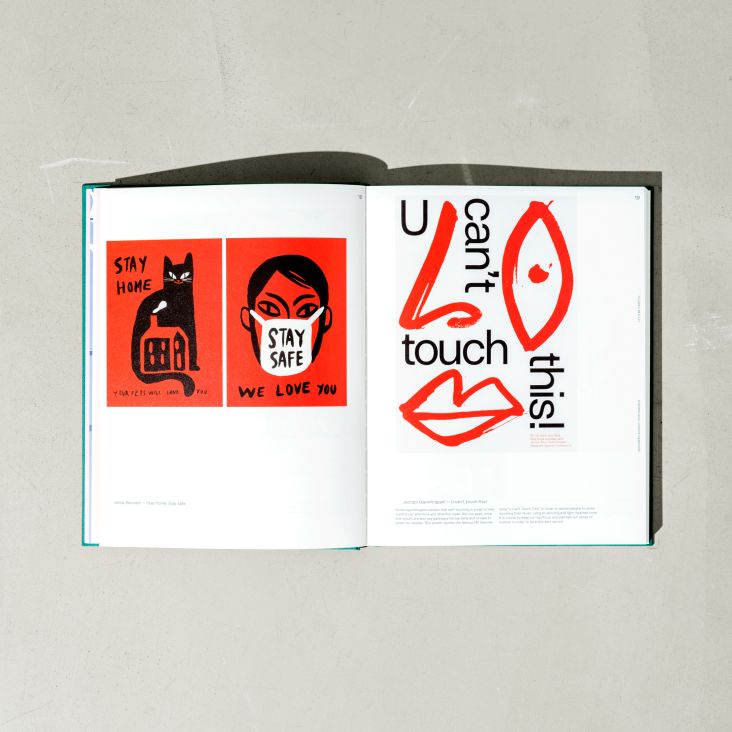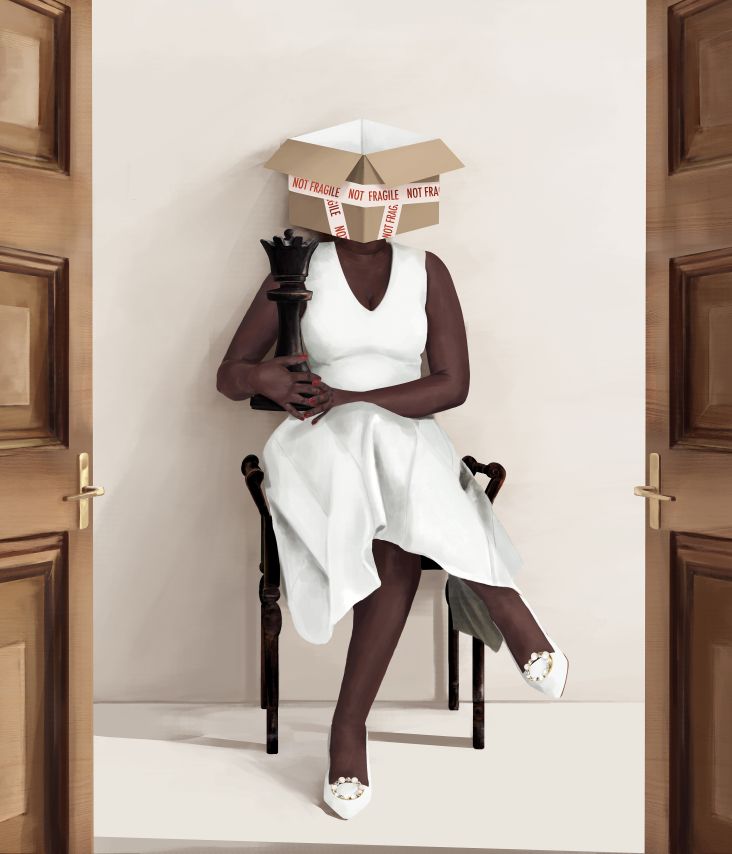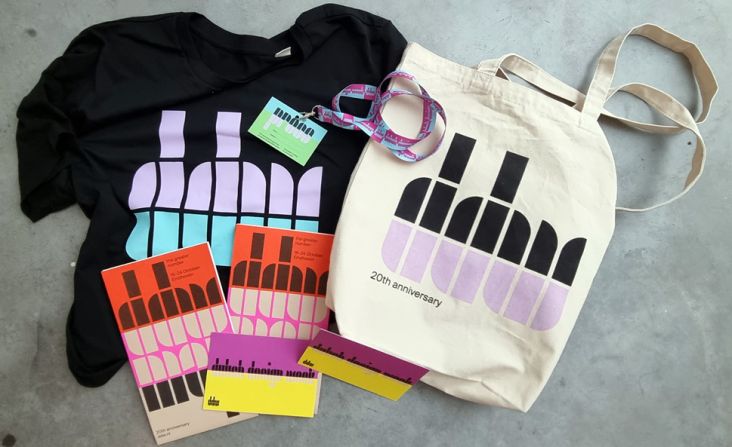Matthew Eguavoen's figurative paintings spark important conversations about society, economics and politics
Far more expressive than the traditional portrait, the Lagos-based artist uses colour and composition to raise questions about gender, race and history – particularly that which is linked to Nigeria and Africa.
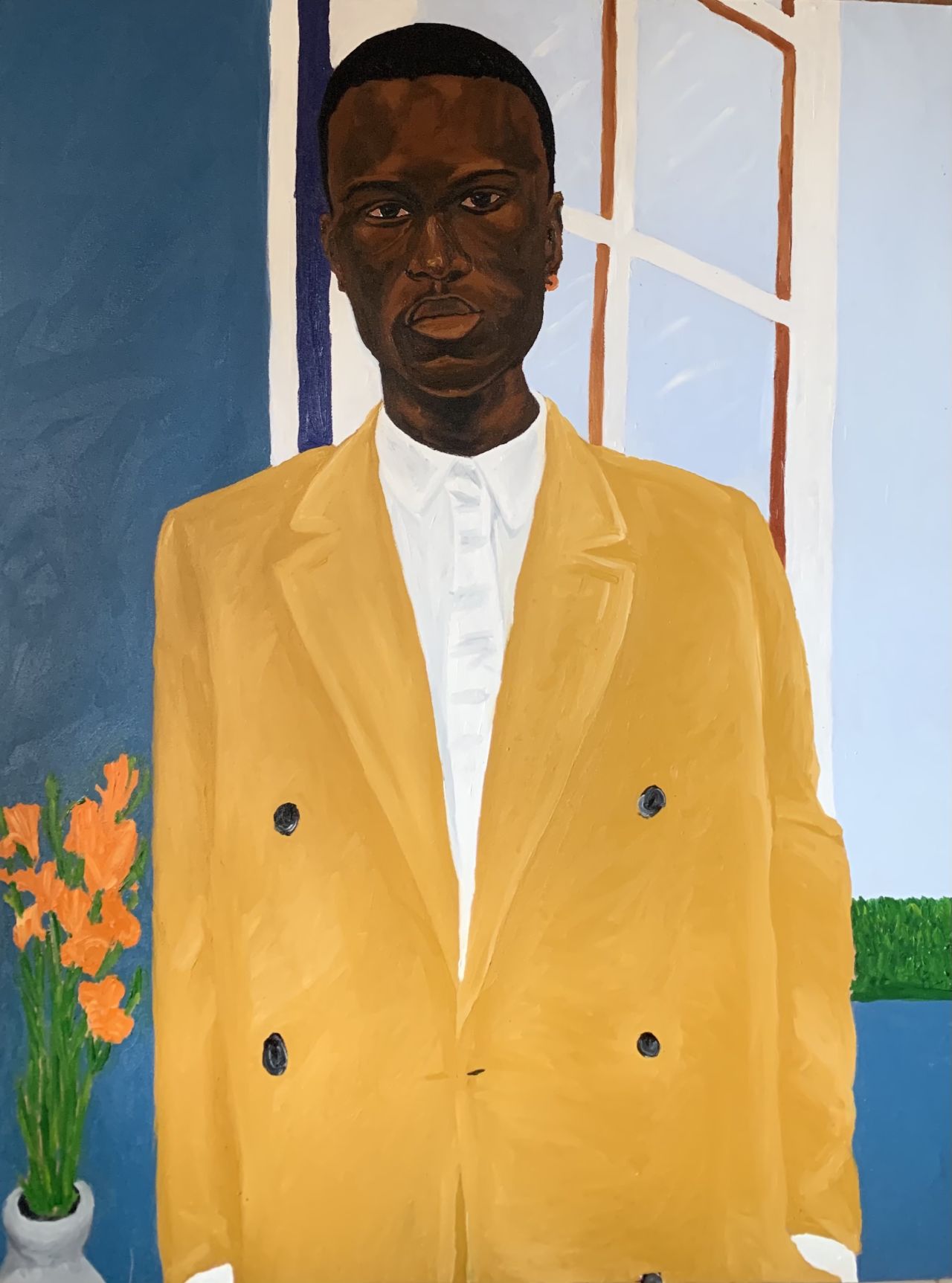
© Matthew Eguavoen
A painted portrait tends to have one main goal: to accurately represent a human subject. In a modern context, and in the work of Matthew Eguavoen, the medium is far more adventurous and free of any rules. Matthew, for instance, paints colourful, figurative works that he uses to tell stories of society, economics and politics.
Matthew is a contemporary artist from Edo State who's currently living in the city of Lagos, Nigeria. Before heading out as a full-time artist, Matthew went to the University of Port Harcourt and attained a Bachelors in Engineering for Civil Engineering and Structures. Indeed quite the contrast to his more creative activities today, Matthew decided to pursue his passion for the arts through his own self-studies. And now, you'll find the artist in his studio, stretching canvas across a stretcher, pruning it, letting it dry, and then finally imprinting his ideas. When painting, he'll often reference an image that he's sourced before staining the canvas with diluted burnt sienna acrylic paint, letting it dry once again and adding layers.
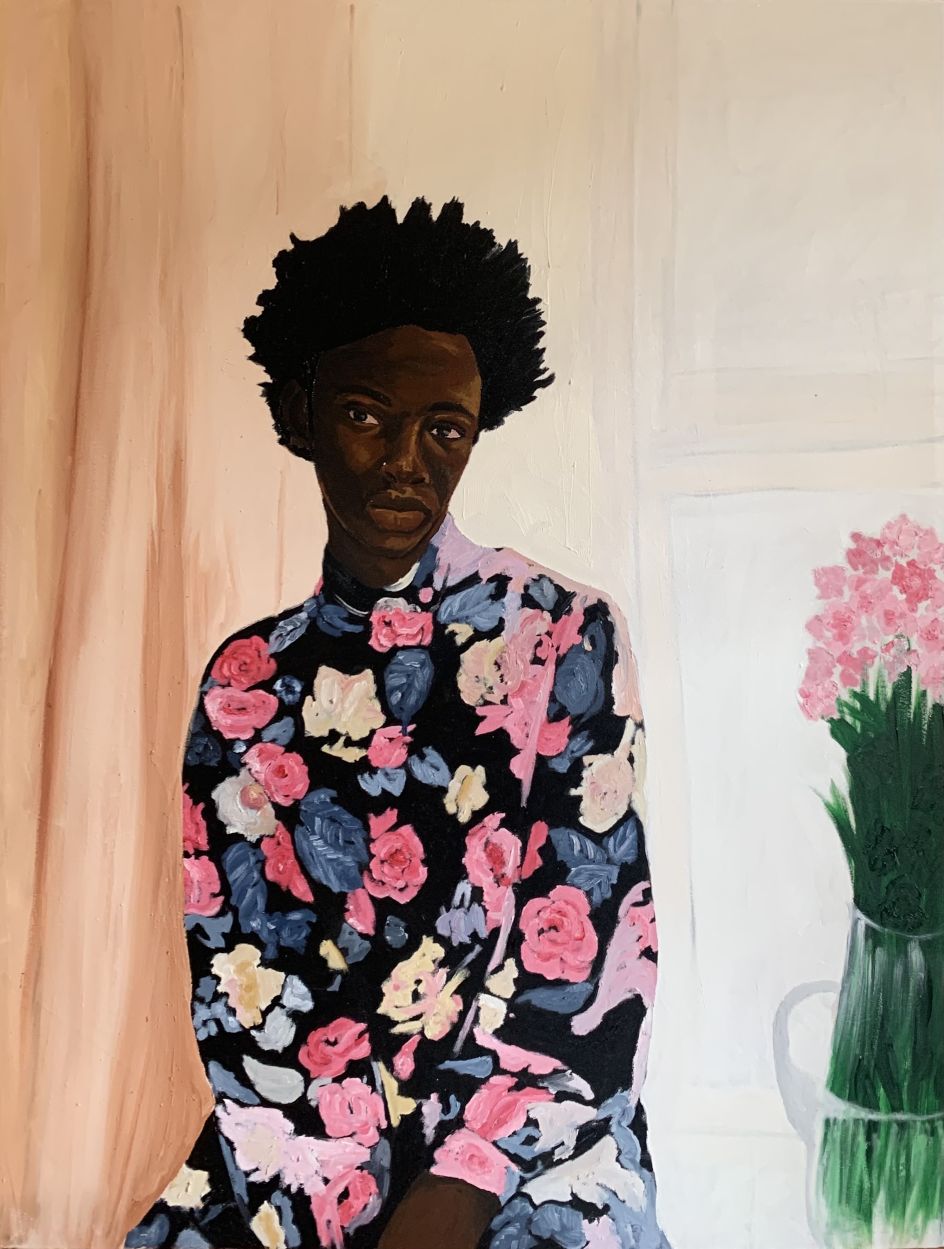
© Matthew Eguavoen
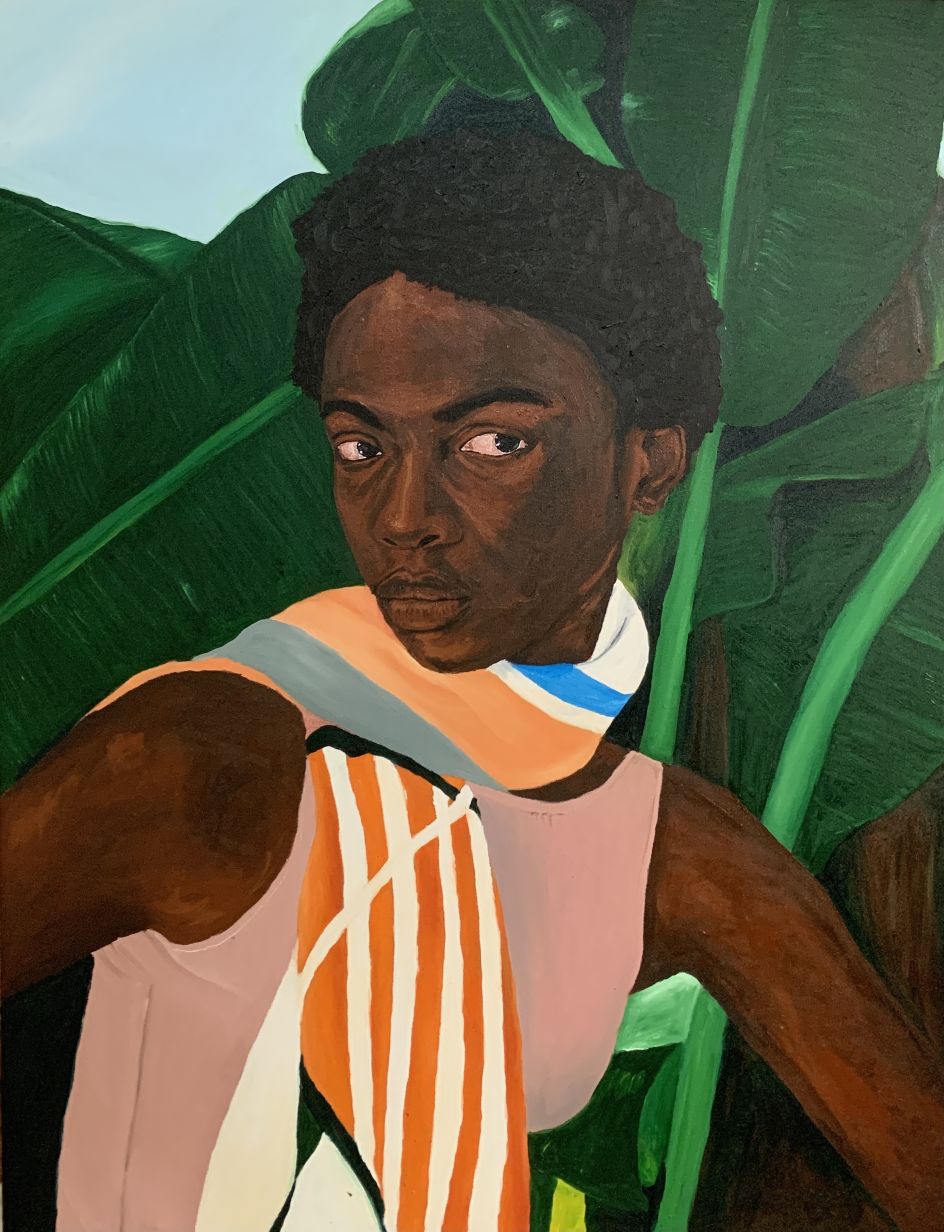
© Matthew Eguavoen
"I use my works to address the societal, economic and political views across the complex intersectionality that Nigerians and Africa at large face in different facets of life," he tells Creative Boom. "The constraint of societal ideology about life, on human existence and survival; this is my own little way of contributing to the society where I find myself."
Did We Really Leave The Plantation is a piece that represents Matthew's ethos entirely. In this work, a subject relaxes on a chair, embellished in golden sunglasses, a scarf and a plush jacket. "It's a piece that questions the effect of slavery on the mental state of Africans," explains Matthew. "Plantation in this context is relative; it represents religion, traditions and societal values, seeing that Africans are still greatly influenced and bound by values introduced by westerners from hundreds of years ago. It makes me personally want to question our emancipation."
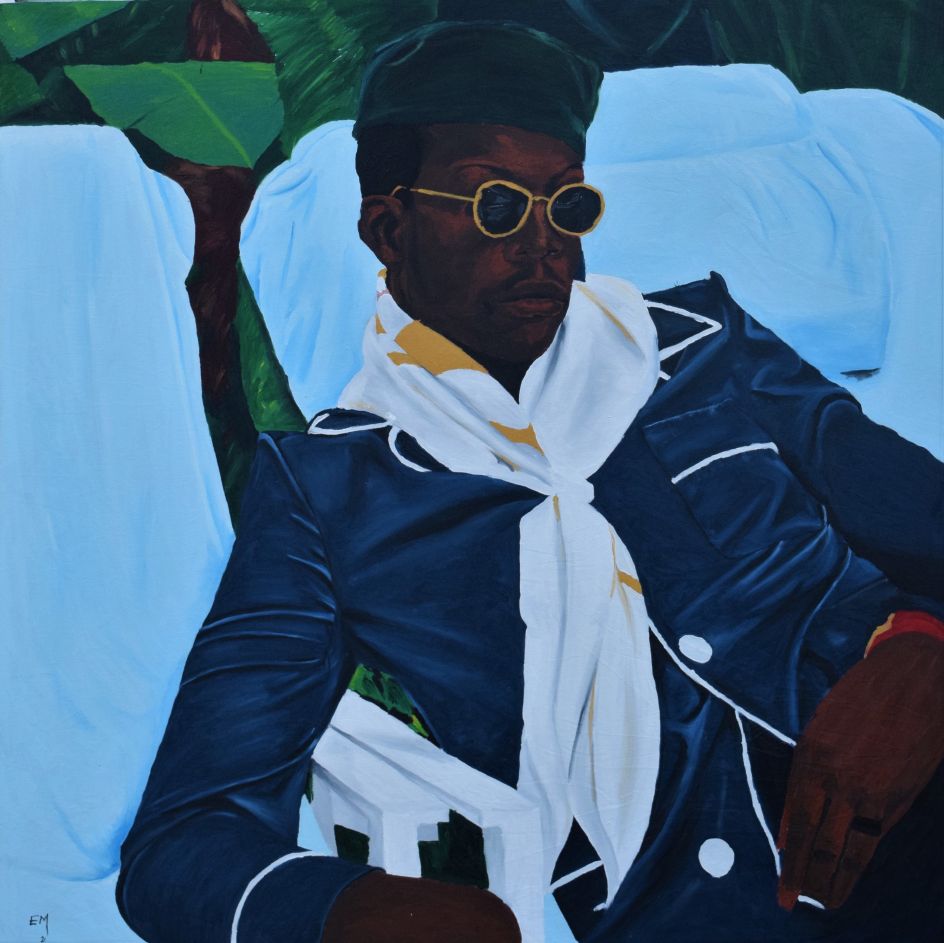
© Matthew Eguavoen
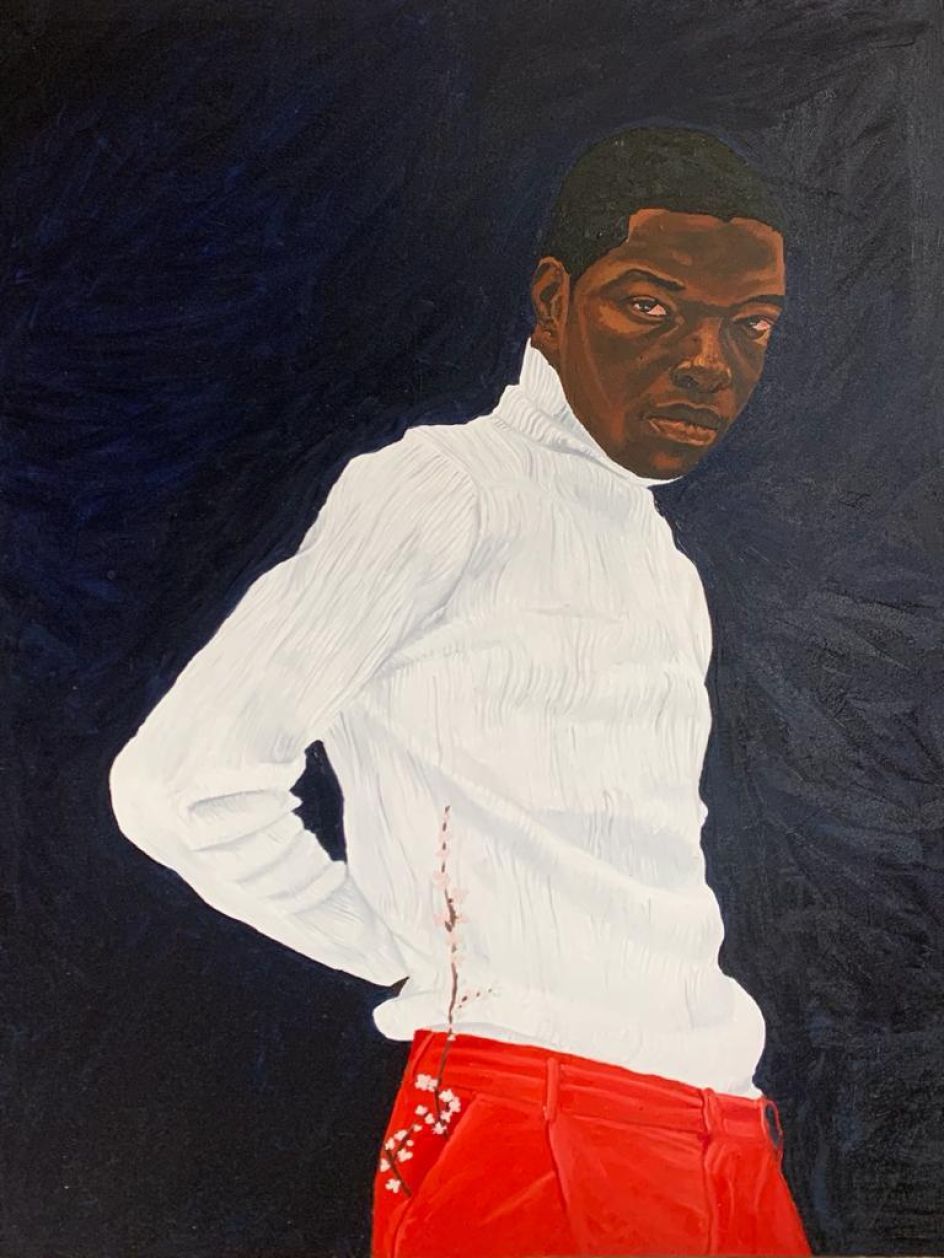
© Matthew Eguavoen
In another painting entitled Womanhood, Matthew questions the role of gender – a societal construct that's forever evolving. In particular, he looks at how gender is "constantly in flux" and how the "biological sex" is conceived as "two distinct realms". To represent these ideas, he's painted a female subject sitting quietly but sternly in front of his gaze; she's wearing feminine florals that pair well with the bouquet to the right and the rosey drapes hanging to the left. He adds: "I often find myself wondering about the nature of womanhood. What does it mean to be a woman? We no longer make sense of what it means to be a woman through a set of physical characteristics or personality traits, nor through fixed societal roles. But if being a woman is not determined by these dimensions, is there some other element that is hared by all women?"
Matthew's work purposely evokes many questions for the viewer, but equally, it's a way for him to address the topics that fascinate or provoke him too. "I hope my works stir up conversations among my generation on better to move my country – Nigeria and Africa as a whole – forward. And not only stir up these conversations, but I also hope that from these conversations we start to actually take action as people and do away with our differences."
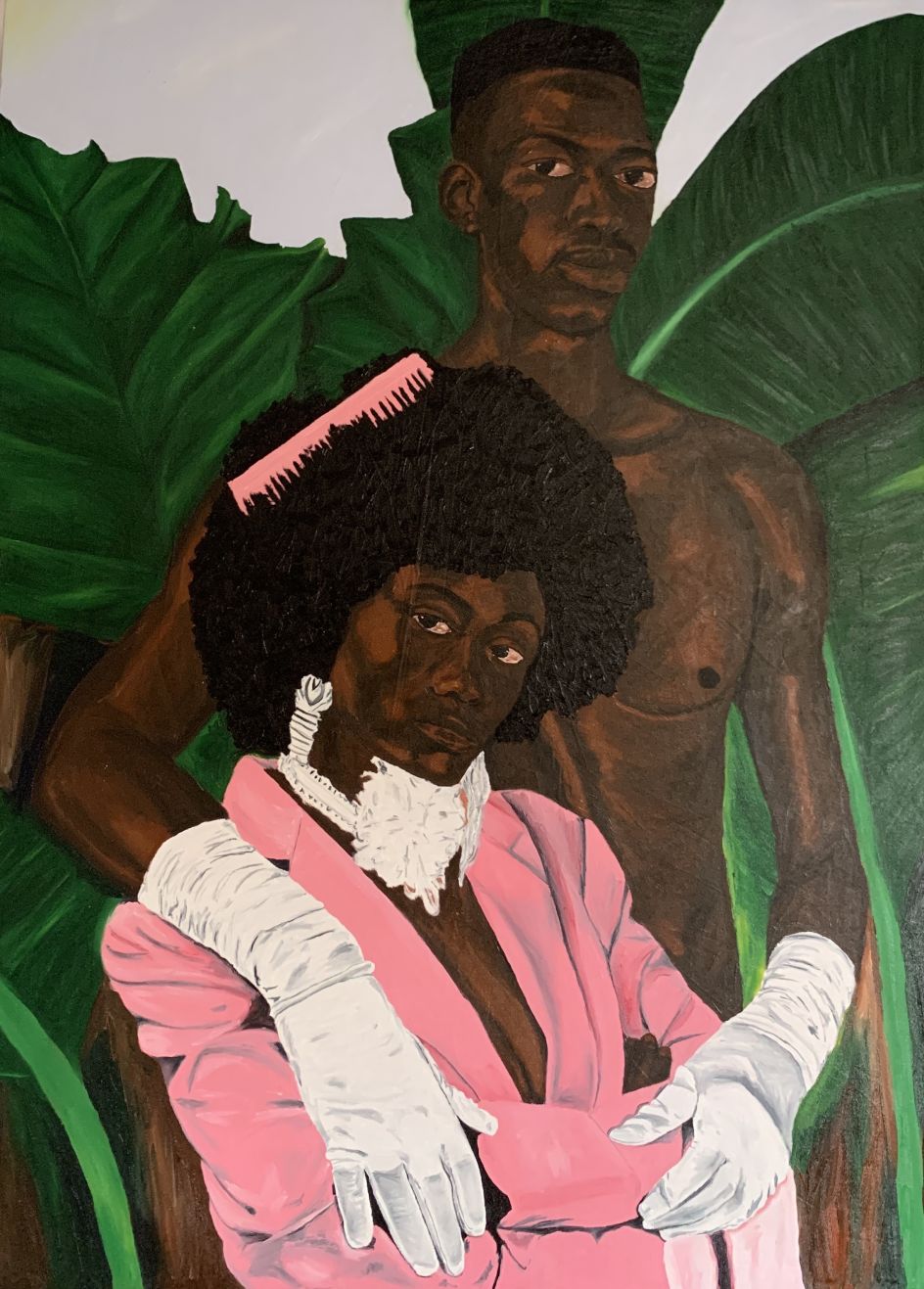
© Matthew Eguavoen
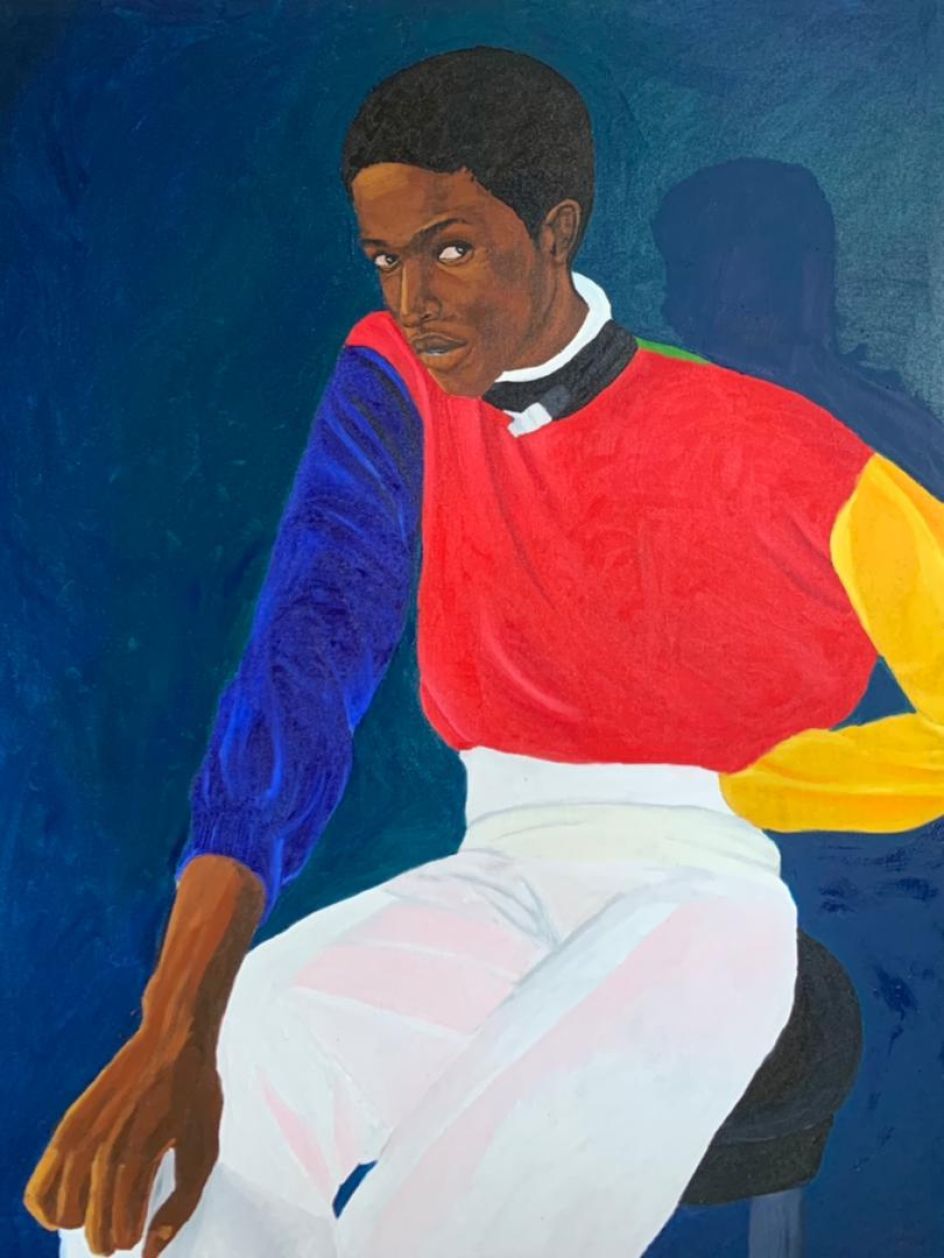
© Matthew Eguavoen
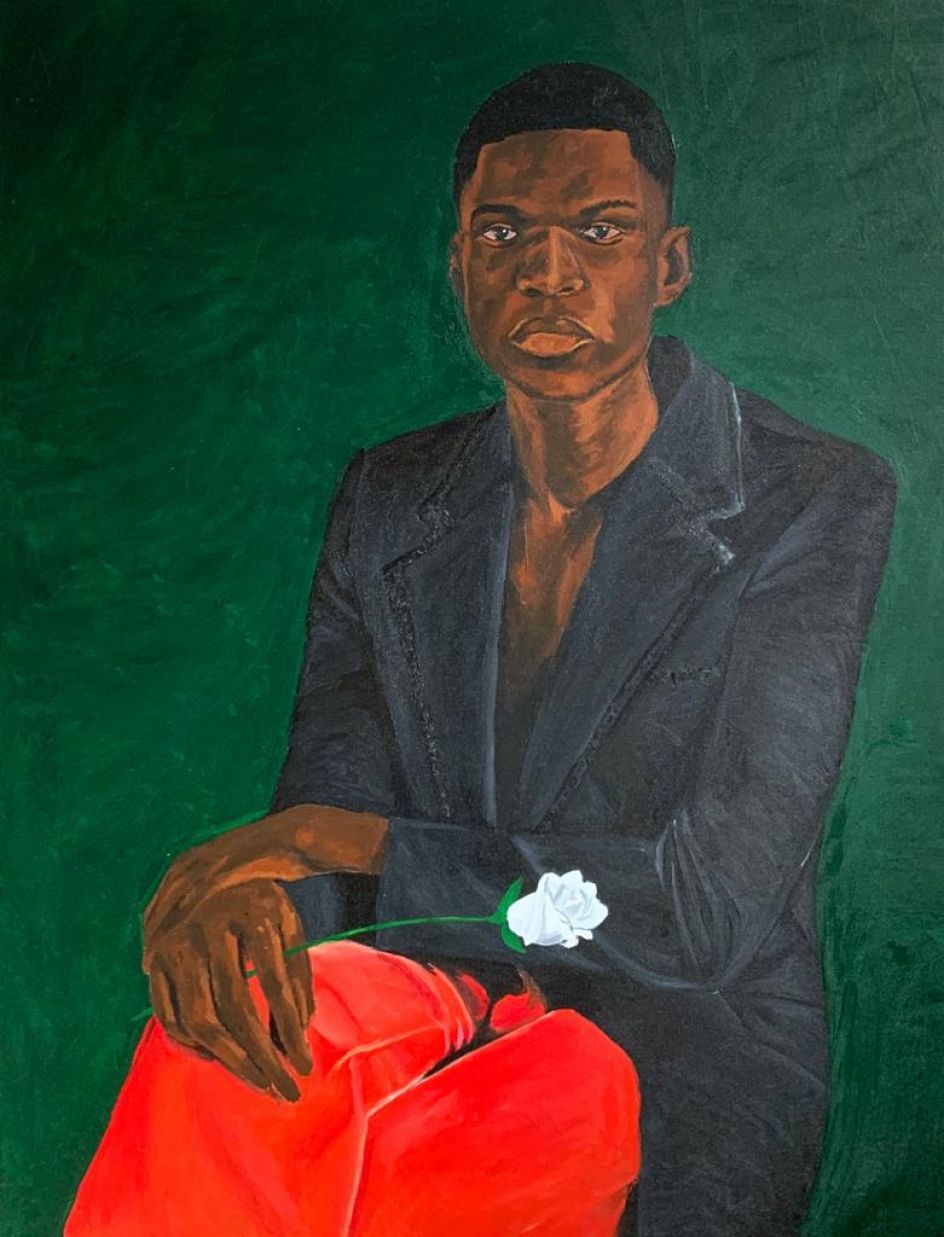
© Matthew Eguavoen




 by Tüpokompanii](https://www.creativeboom.com/upload/articles/58/58684538770fb5b428dc1882f7a732f153500153_732.jpg)


 using <a href="https://www.ohnotype.co/fonts/obviously" target="_blank">Obviously</a> by Oh No Type Co., Art Director, Brand & Creative—Spotify](https://www.creativeboom.com/upload/articles/6e/6ed31eddc26fa563f213fc76d6993dab9231ffe4_732.jpg)








